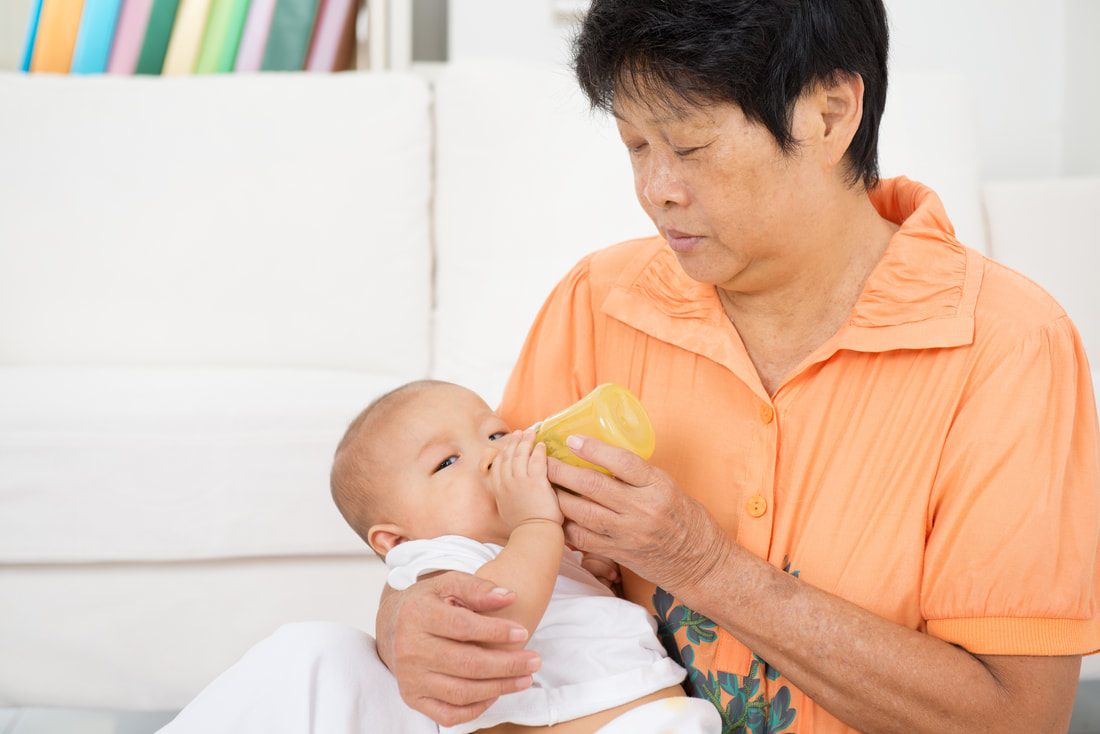Interactions with Infants and Toddlers |
Page 9 |
Infant and toddler teachers have an awesome responsibility. Research shows that more rapid brain development takes place during these years than at any other time of life. Babies are born learning. Children need the right experiences at the right times for their brains to fully develop. It is now known that the first three years of life are more critical to a child’s development than ever imagined. Talk to infants and toddlers often in loving tones with descriptive words. Make this a part of your routine care. These activities promote attachment and bonding – crucial components for normal growth and development.
Feeding Time as a Social and Learning Experience for Infants
|
Tremendous growth and development take place during the first year of a child’s life. As a caregiver to infants, two of your most important jobs are to provide nutrients to support growth and provide stimulation to encourage development. Feeding times provide opportunities to do both. Talk to the infant during the feeding. Talk about anything. Describe what is in the bottle, what is going on in the room, how you are feeling, or how you think the baby feels. Repeat the infant’s sounds. These sounds are the beginning of the infant’s language.
|
Infants will make more sounds when you talk back. They have short memories (about five seconds), so it is important to answer them right away. Try different sounds with your voice. Sing, hum, use a different pitch, or make funny noises. Infants respond to different tones, voice levels, or unusual sounds. Recognize the infant’s non-verbal cues used to communicate with you such as smiling, laughing, searching, looking for your eyes, or reaching to touch you.
Use diaper changing as a time for relaxed, one-on-one interaction with children.
Don’t communicate disgust or disapproval. Handle children gently as you go about cleaning them up and diapering them. Talk to the child constantly. There should be lots of eye contact, smiles, and social games. Pleasant and stimulating diaper changing times are especially important for younger infants, whose range of activities is so limited.
Course Navigation Menu
|
|



